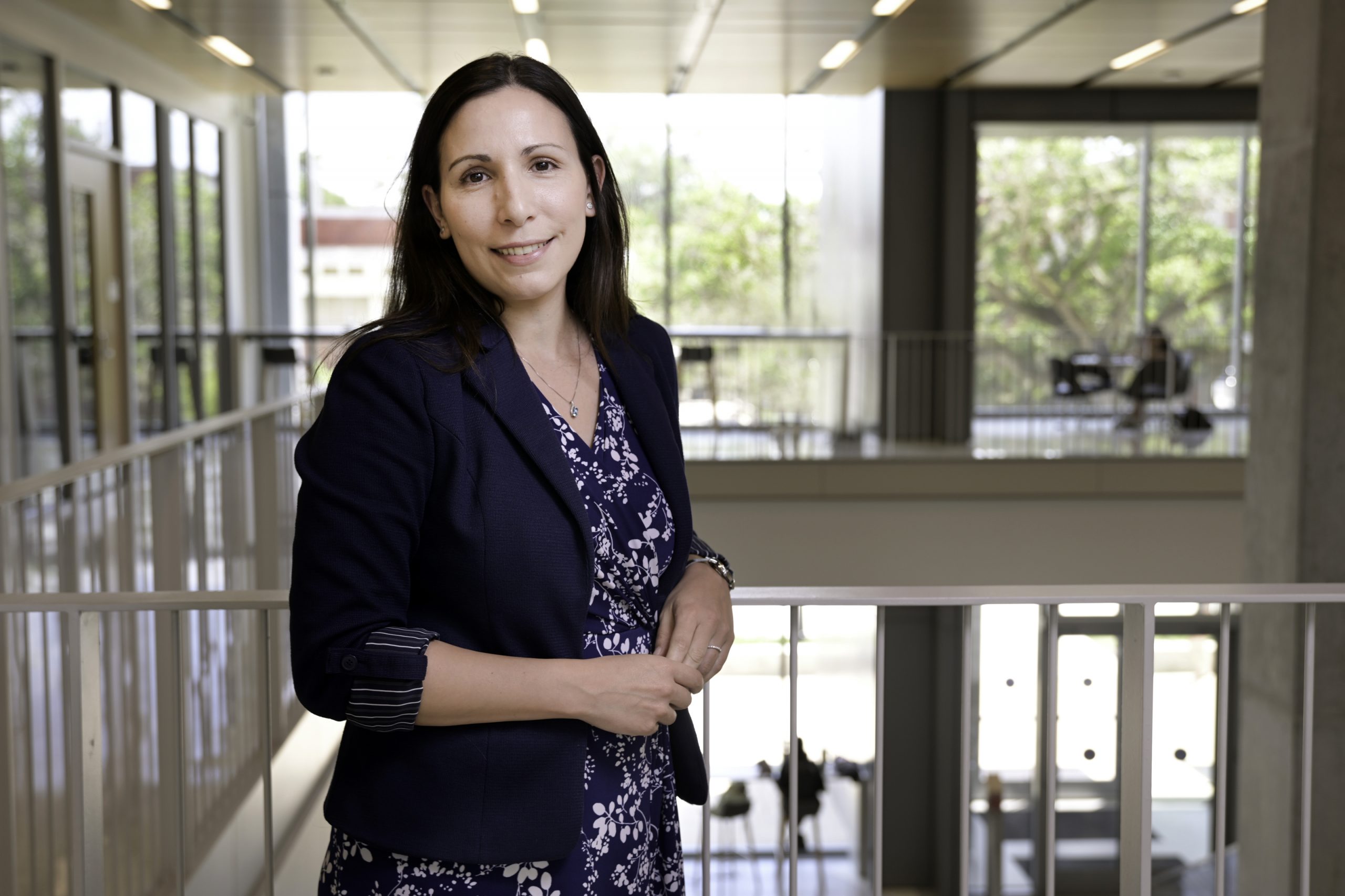Catia Silva, Ph.D., will never forget her first time teaching solo at the University of Florida.
“That was in 2018,” she recalled. “At the time, I was covering for a professor in our department who was pregnant and needed help covering her course. It felt overwhelming at first because the students are just so smart. They want to learn, and they push you to be on par with the latest.”
Born in Portugal with childhood aspirations of becoming a veterinarian, Silva now adores teaching. And UF, it seems, adores the way she teaches.
An instructional assistant professor with the Department of Electrical & Computer Engineering (ECE), Silva received the Herbert Wertheim College of Engineering Undergraduate Teacher of the Year Award earlier this year.

“This honor, based on an extensive review of your credentials, letters of recommendation and peer and student evaluations, recognizes your excellence in teaching our students,” Toshikazu Nishida, associate dean for academic affairs at the college, wrote in a letter to Silva. “Quality contributions to engineering education such as yours are what set our college apart and help us to be a leader among our peers.”
Two months after winning that award, Silva was notified she also won a 2025 Rising Star Award from the UF Center for Teaching Excellence.
“The Rising Star Awards recognize faculty who participate in professional development, focused training, and pay it forward. Your commitment to these areas not only enhances your own teaching practice but also significantly contributes to the growth and success of our academic community. Your efforts inspire both your colleagues and students, setting a high standard for excellence in education,” wrote Alexandra Bitton-Bailey, Ph.D., Center for Teaching Excellence director.
The first in her close family to attend college (but not the last), Silva studied at the University of Porto in Portugal, earning a bachelor’s degree in applied mathematics and her master’s degree in Biomedical Engineering. But it wasn’t until she ended up in a doctoral program at UF that she first considered teaching.
Her UF classes are hands-on and guided by the Socratic method, which employs probing questions to stimulate critical thinking.
“It is an inquiry-based form of teaching. You ask a complicated or controversial question and try to have the students answer,” she said. “But instead of providing them with the right answer, you counter to say, ‘What if this happened?’ I tried to use that in the context of STEM and machine learning. It’s difficult at times because you need to encourage students to be able to speak up in a room with 50 or more people.”
Silva also uses universal design for learning, a teaching framework that offers opportunities for neurodiverse students.
“Dr Silva has developed and delivered engaging lecture materials for both undergraduate and graduate courses in the field of machine learning. Her use of Jupyter Notebooks and Python coding in her courses creates an interactive and dynamic learning environment,” noted the nomination letter, which is based on student support letters.
Silva grew up in the small town of Vila de Cucujães in Portugal, where her family still lives. She had not considered moving to the United States until her university mentor suggested she present her work on optimizing electric grids to UF Distinguished ECE Professor José Príncipe, who was visiting Portugal (he, too, received his bachelor’s from the University of Porto).
“He did a little test just like he does with his students – ‘Hey, work on this, build some code and then show me the results.’ I applied for a fellowship for my Ph.D. because I didn’t have the financial means to come here,” Silva recalled. “If I were to be accepted, then I was going to make this big move. I had to tell my family, so that was a challenge.”
Her family, of course, was supportive. And proud.
She moved to Gainesville in 2013, and Príncipe – a renowned educator and researcher specializing in information theory and adaptive systems – became her mentor. She conducted research in the Computational Neural Engineering Laboratory (CNEL), with her doctoral research centering on developing systems to quantify spatiotemporal neural activity.
In 2018, Silva graduated from UF with her Ph.D. in electrical & computer engineering and became a professor in 2019. In 2021, she won the UF HKN & IEEE Faculty of the Year award, a student choice award, followed by the ECE Excellence Award in Teaching in 2022.
“It was a little scary at the time,” Silva said of the move from her beloved tiny town in Portugal to teaching cutting-edge technologies in swampy Florida. “But everything just worked.”
Her students would agree.

